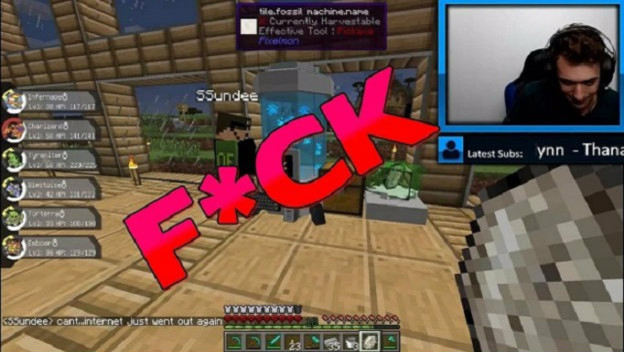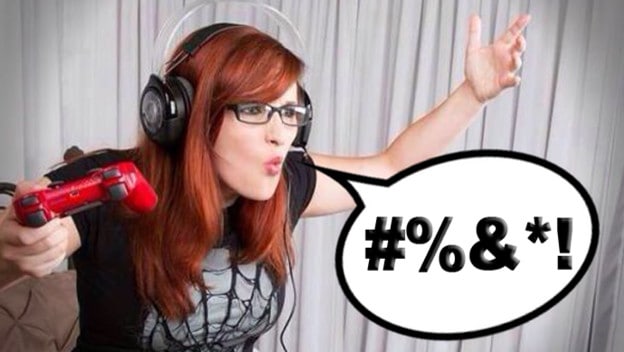Swearing is practically everywhere in gaming, to varying degrees. It’s in forums, multiplayer chats, livestreams, and of course in the games themselves. But it’s those varying degrees that have become a growing issue, with cursing so commonplace the general populace has become desensitized to it and the line drawn so far it’s hard to cross. Social etiquette becomes a hazy realm when foul language’s audience is not physically next to the orator. Sticks and stones cannot be thrown through broadband cables, but then again, the intent is also a factor. Swearing can be used to emphasize a victory or compliment, but also as a casual complaint, a rage quit rant, or abusive trolling. So how do we handle the language, and what sort of moderation does it need?
Developer Psyonix is seeing a growing concern in their mushrooming Rocket League community and is taking action to temper some of the abuse. Their report system has been updated to include a Language Ban that flags reported players and monitors continued use of words and phrases they deem highly inappropriate, such as racial slurs. Bans of increasing length will be issued to repeat offenders, with a permanent ban being the final straw. It is a hard line with real consequences that could prompt some passionate players to show restraint when the next urge to blast profanities hits them.
However, the finger can’t always be pointed at the curse spouting crowd. Granted, racial slurs, prejudice insults, and other abusive language should not be tolerated in any community. But just swearing is a situational issue, with the parties on both side needing to be proactive in their decision to engage in the conversation. For instance, if you’re in a heated CS:GO match, spewing frustrations back and forth with the rest of your squad and they’re cool with it, what’s the harm? If some random pre-teen shows up with soft skin, they should understand that they chose to partake in the action of a game tagged beyond their age.
In the end, everybody needs to be aware of their surroundings. If you’re in a public setting and cursing is part of your natural language, try a little self-moderation. Don’t go into Rocket League , a game with a wide age range, and start shouting f-bombs at random strangers for missing a save; or if you’re going to swear up a storm while streaming a game like Stardew Valley , try flipping on the Mature Content switch before you start. On the other hand, sensitive gamers need to be mindful of which rooms, channels, and forums they decide to visit. You can’t always avoid foul language flung in your direction, but you can mitigate the amount of exposure by taking a moment to size up the company you’re with, or learn to take the trash talk with a grain of salt.

Developers could also be more proactive, with regards to multiplayer inclusivity. Servers and lobbies could be dedicated to clean language and better filters can be added with programs that organically update the banned words and phrase list to combat the curse loving trolls who try to cheat the system with grammar changes. They could be more aggressive, like Psyonix, with a ban system to curb abusive language and make their multiplayer community more accommodating to everyone. The growing population of livestreamers whom filter themselves can take a little extra time to describe their channel and add in more rules than simply, “Don’t be a dick.” Streaming services can add more tools and tags for content creators to use to customize their broadcasts for specific audiences.
What do you think? Is foul language in the gaming community getting out of hand, or should the emotionally timid simply avoid the abuse and stay offline? Leave your thoughts in the comments below.
